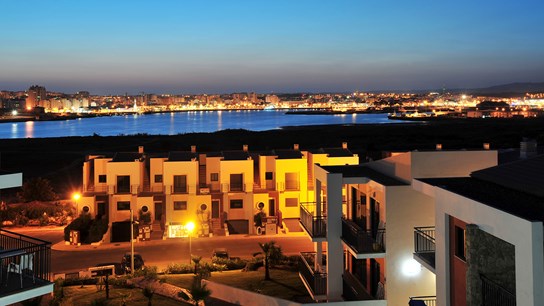

The approach might seem suspicious because we refer to the country itself, but the data are clear and corroborate: according to the 2023 Annual Global Retirement Index, published at the beginning of the year by International Living, Portugal has consolidated its position as the main residence destination for retired foreign citizens.
In addition to the typical criteria such as gastronomy, cost of living, access to health care or housing, others were considered equally relevant, such as affinity/empathy with the country or security in the governance system and where Portugal obtained an impeccable rating, standing out as the only European country on the podium.
For this brilliant performance, another criterion that reflects the perception of a safe immigration process, a visa application specific to your specific circumstances, as well as the associated tax and social benefits, concurred.
Confirmed:
Portuguese immigration law provides for the D7 residence visa, applicable to foreign citizens who, by proving their passive income, intend to establish their residence here legally.
The main requirements are clear:
- Prove a regular and continuous source of passive income in a monthly amount equal to or greater than €760.00[1] – in addition to retirement pensions, other sources of passive income may also be considered, such as shares, real estate income, dividends from foreign companies;
- Prove the availability of means of subsistence in the national territory, through a bank deposit of €10,000.00 or more;
- Present proof of accommodation in Portugal, either through a lease agreement with a duration of one year or more, or through the purchase of property.
- In addition to the specific requirements, the D7 visa applicant should consider the other generic documentation for a residence visa application, such as the passport and criminal record certificate.
Once the visa has been issued, the holder must travel to Portugal within its validity, that is, within 120 days, and must attend an interview at the Foreigners and Borders Service to apply for the granting of the corresponding residence permit (card).
The first residence permit is valid for two years, renewable for three years and, after the five years of legal residence, its holder will be able to apply for permanent residence in Portugal and will be eligible for Portuguese nationality, as long as it meets the other requirements.
Once you are a resident in our country, temporarily or permanently, you can access public health and education services, like any other national citizen.
Our experience tells us that the data from the above-mentioned survey do not reflect just an intention, but, increasingly, a concreteness: the application for this type of visa is increasingly popular among Portuguese consular entities.
Portugal continues to be an option for foreign investment, but it is also an increasingly valid and internationally recognized option for those who want to make our country their home!
[1] Amount corresponding to the National Minimum Wage, legally established.


